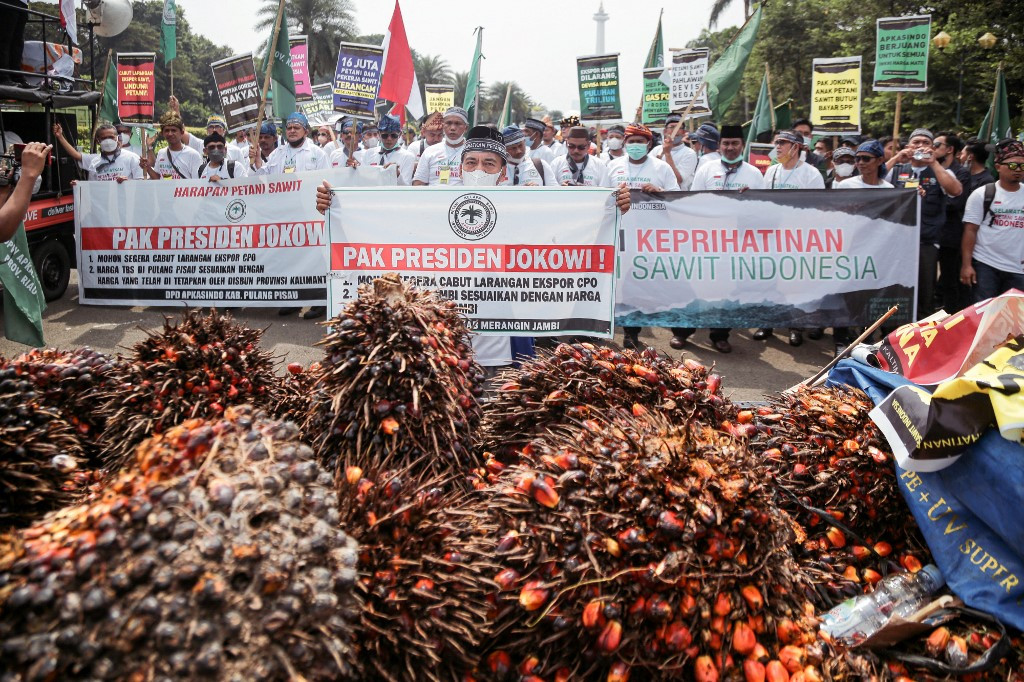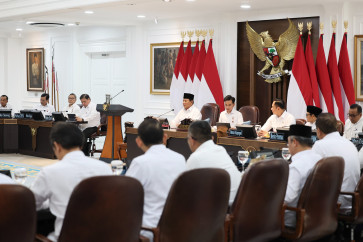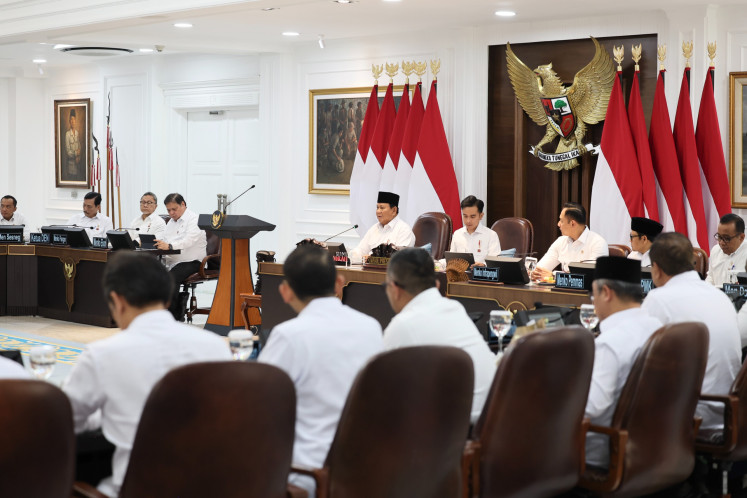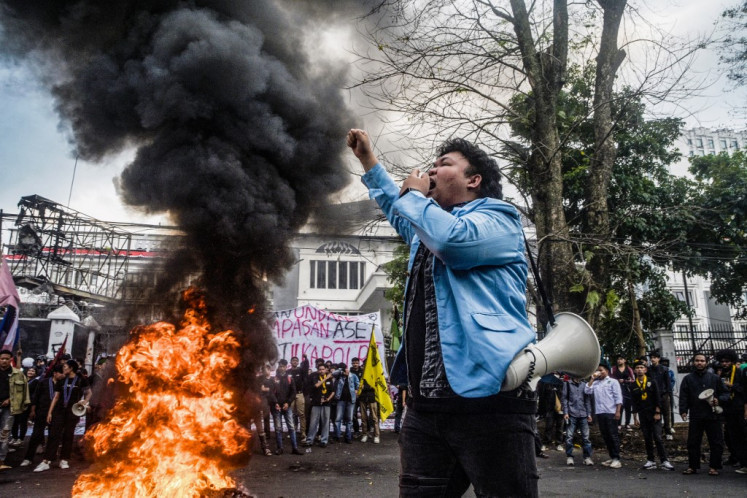Popular Reads
Top Results
Can't find what you're looking for?
View all search resultsPopular Reads
Top Results
Can't find what you're looking for?
View all search resultsEconomists warn against overreliance on coal, CPO
Trade surplus could prove unsustainable once prices drop.
Change text size
Gift Premium Articles
to Anyone
I
ndonesia achieved its biggest-ever trade surplus in the first half of 2022, but experts warn that relying on raw materials like crude palm oil (CPO) and coal as the bulwark of productivity is unsustainable in the long run.
They agree that a wide range of factors will narrow the trade surplus, or even turn it into a deficit, if fundamental aspects of the domestic economy are not changed.
The archipelagic nation’s exports to the rest of the world exceeded its imports by US$24.89 billion. That is more than twice the surplus the country achieved in the equivalent period of 2021.
“[Last] semester's surplus is the highest [...]; this is very good news for us,” Statistics Indonesia (BPS) head Margo Yuwono said on July 15 during a press conference to present the latest trade data.
In the month of June, Indonesia’s surplus amounted to $5.09 billion, which is almost four times as high as a year earlier and up around 75 percent from the preceding month. It also handily exceeded an estimate by Bank Mandiri economists for a surplus of $3.34 billion.
The details of the trade report show that raw materials continue to be of prime importance.
Coal and CPO were the largest contributors to exports in the first half of the year with shipments amounting to $24.11 billion (17.09 percent of the total) and $15.14 billion (10.73 percent of the total), respectively.
CPO exports in June tripled from the preceding month to $2.5 billion after a short-lived export ban had been lifted in May. The ban had been imposed, according to the government, to secure domestic-palm-oil supplies and thereby bring down the price of cooking oil.
In an about-face, the government is now seeking to boost CPO exports, because the ban increased inventories to the detriment of farmers, who saw palm-oil selling-prices plummet.
To incentivize shipments of CPO out of the country, the government has waived all export levies for palm-oil products until Aug. 31.
BPS data show that coal prices increased 152.28 percent year-on-year (yoy) to $284.9 per ton and CPO prices rose 49.45 percent yoy to $1,501 per ton in June.
Read also: Analysis: Govt adopts mandatory B35 biodiesel program as CPO prices tumble
Analysts have pointed out that the uptrend in commodity prices could end in the near future due to several underlying issues.
Economists from state-owned Bank Mandiri noted that price rallies of key Indonesian export commodities were starting to falter as a fear of stagflation loomed over the global economy.
Stagflation is a condition where a nation's economic output -- measured in GDP -- declines while consumer prices, measured through the consumer price index (CPI), increase.
The World Bank has warned of a risk of stagflation for the global economy.
"Now, unfortunately, the rule book on how to handle stagflation is not one that is used often. In fact, the last time the world experienced stagflation was in the early 1980s. What we do know is that stagflation creates a perfect storm for policymakers," World Bank Indonesia and Timor-Leste lead-economist Habib Rab told reporters on June 22.
Even though Indonesia is not seen to be at risk of experiencing stagflation itself, it would still suffer from the effects of stagflation elsewhere, as the economic crisis would reduce demand for Indonesian export commodities.
Economists from Bank Mandiri warn that lower prices of commodities could turn the country’s trade surplus into a deficit as the recovering domestic economy would import more while earning less for its key-export goods.
The latest BPS data show that, so far, only CPO prices have plunged on a monthly basis, decreasing 12.57 percent in June, while coal prices still increased by 1.74 percent mtm.
Read also: World Bank warns of downside risks to GDP
Center of Economic and Law Studies (CELIOS) director Bhima Yudhistira said a lessening export windfall meant state revenue would drop significantly, which would affect government policies to counter inflation, such as energy subsidies.
As a result, consumers' purchasing power was likely to get dragged down.
"The effect of this decline in commodity prices extends beyond the trade balance to various fiscal and monetary indicators," Bhima told The Jakarta Post on Wednesday.
Other experts question the sustainability of the gains Indonesia reaps from the coal and CPO trade.
Institute for Development of Economics and Finance (INDEF) economist Abdul Manap pointed out that some countries had begun to phase out the use of what they deem environmentally unfriendly commodities, particularly those contributing to global warming.
As a result, he proposed that Indonesia reduce its reliance on these commodities, such as coal and CPO, and begin to look into shipping out more refined goods and services to increase the value of its exports.
"If we continue to depend on [coal and CPO] while the world has switched to environmentally friendly energy, in the long run we will not be able to earn foreign exchange from it. And we will also be branded as a country that is not committed to its climate-change promises," Abdul told the Post on Wednesday.










